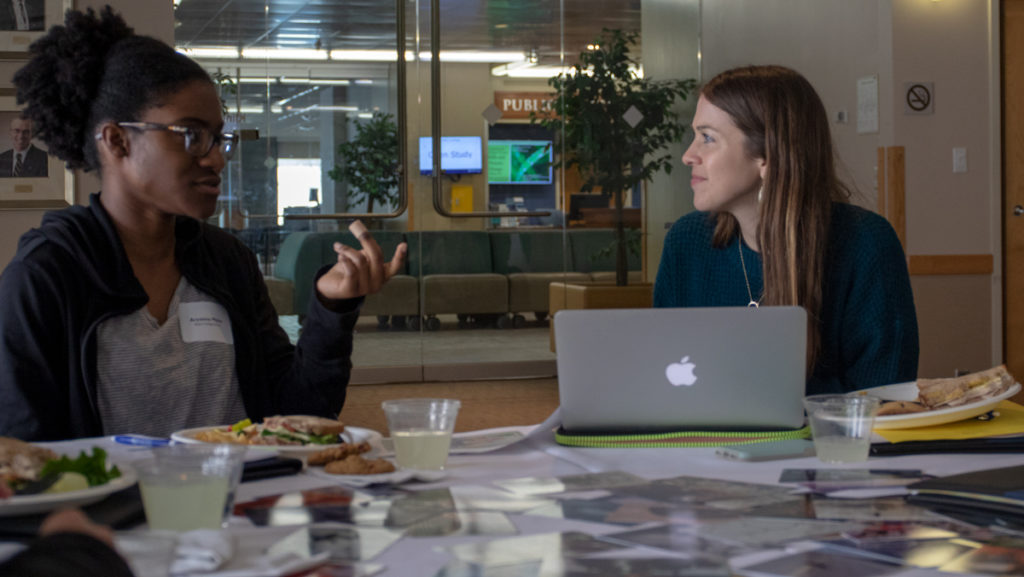Student employees at Ithaca College attended a half–day event March 2 in Klingenstein Lounge to discuss how to develop their leadership skills and provide feedback to the college to help student workers.
The event was hosted by Michele Lenhart, director of the Office for Student Engagement, and College Librarian Lisabeth Chabot, who directed the multiple activities that nearly 25 student employees participated in.
Lenhart said the college is trying to keep students engaged and get students employees to develop more as employees in their departments.
“The idea is to keep professional development going for student employees,” Lenhart said. “There are over 2,000 student employees on campus, and so, this is a really significant group of students, and if we can figure a way to make that experience as meaningful as possible, it’s such a great learning experience.
Chabot said the college wanted to host the program to get feedback from students on how the college is helping to develop its employees.
“So, we’re thinking about activities that help the students develop,” Chabot said. “Students spend more time outside the classroom than inside the classroom, so what are activities that help students develop something besides academic success?”
One of the activities was hosted by Elyse Nepa, coordinator in the Department of Public Safety and Emergency Management, and in the activity she informed students on the differences between empathy and sympathy. Merriam–Webster’s Dictionary defines empathy as vicariously experiencing the feelings, thoughts and experience of another without having fully communicated, whereas sympathy is defined as the act or capacity of entering into or sharing the feelings or interests of another.
Nepa said it is important for student leaders to understand when other students are dealing with difficult situations and to be able to help them cope with hardships they may be experiencing.
Nepa said that being able to relate to someone’s difficult situation, while at the same time not putting yourself in the center of their issues, is the key to being empathetic.
“As a young individual, I never really understood how to sit there and be empathetic, but instead I wanted to relate and say, ‘Me too, I experienced that too,’” Nepa said. “To me, that meant there’s a sense of connection between you and I. But by doing that — by putting yourself in the center when someone is disclosing something to you — you remove that person from the center, and that person is the one that needs to receive the help in that moment.”
Junior Cassandra Hoover said the session will help in her job in Parking Services to get student workers to better understand what they have to do.
“I think showing people that growth does happen and that you can make advances and things do come easier eventually will help new employees,” Hoover said. “I really liked Elyse’s presentation, because I deal with a lot of mostly angry people, which is fine, but it’s helpful to know different ways you can make them feel more comfortable.”
A previous version of this article stated junior Cassandra Hoover was employed by the Office of Student Engagement. It has been corrected to say she is employed by Parking Services








